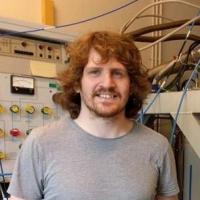SystemX Affiliates: login to view related content.

The realization of quantum computers will provide a new and unprecedented computing resource that could significantly impact many industries ranging from medicine to artificial intelligence. Recently, the field of quantum computing has been transitioning from experimental demonstrations of quantum bits (qubits) to engineering larger scale quantum systems with the aid of industry. Electron spin qubits in silicon are an excellent candidate for this purpose as they can be made using transistor-like structures that are CMOS compatible, opening up the possibility to leverage off the semiconducting industry [1].
In this talk I will discuss the state-of-the-art in the silicon spin qubit field focusing on my recent work at TUDelft where we demonstrated a programmable two-qubit quantum processor that could perform the Deutsch-Josza and Grover search algorithm [2]. Moving to larger scale qubit systems will require the ability to make reproducible qubit arrays which is incredibly challenging for university clean rooms due limited process control and slow turn around. I will discuss how these issues are being addressed at Intel through the use of their industrial 300mm fabrication line and expertise in high volume electrical tests.
[1] F. A. Zwanenburg et al. Silicon quantum electronics, Rev. Mod. Phys. 85, 961 (2013)
[2] T. F. Watson et al. A programmable two-qubit processor in silicon, Nature 555, 633-637 (2018)
Dr Thomas Watson is a quantum engineer at Intel Corporation where he is a part of a research team that is using Intel’s industrial 300mm process line to accelerate the development of quantum computers towards commercial applications. Before joining Intel, Thomas was a postdoc in Lieven Vandersypen’s group at TUDelft, Netherlands and received his PhD in 2015 from the University of New South Wales, Australia under the supervision of Michelle Simmons.
Thomas’ research focuses on building small scale quantum computers using individual spins confined to semiconductors. His expertise is in qubit control and his research highlights includes demonstrating the first programmable two-qubit quantum processor in silicon.


